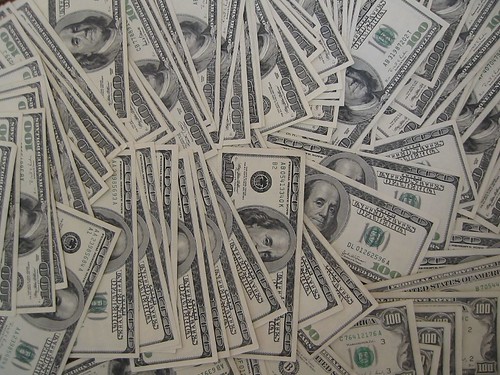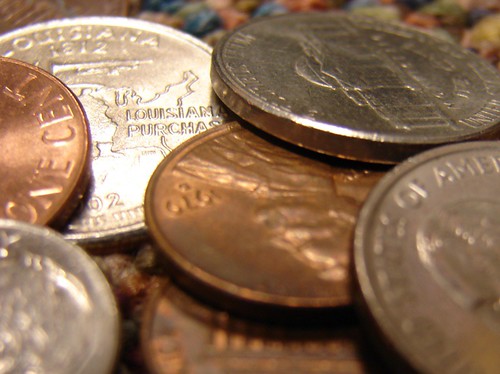Times are tough out there. The economy is at the forefront of the news every day. Companies that were believed to be stalwarts are turning out to be broke. Many are saying this is the worst the economy as been since the Great Depression. Is there a silver lining to this economy?!? Yes.
8 Ways The Economic Crisis Can Be Good For You:
- Lower House Prices and Lower Mortgage Rates – If you don’t already own a home now may be a great time to buy one! Housing prices have been dropping. The bloated home prices of the past few years are finally reversing. If your finances are sound and you can make the payments you might find yourself with a house bargain. Add to that dropping mortgage rates and this might be the time to buy if you’ve been waiting but couldn’t afford it before. If you have a variable rate mortgage it could be the right time to lock in your rate. Mortgages are already low so you figure they have to go up eventually!
- Buying A New Car – If you have been in the market for a new car then now is a great time to buy! The big three American car makers are hurting and are basically giving their cars away at cost just to keep their inventory moving. To compete, foreign car makers are offering deals as well. Most companies are offering 0% interest for qualified buyers. That’s a free loan o buy their car.
- Sales – Just like the car manufacturers many other companies and stores are hurting and are doing whatever they can to sell their products. Forecast are already low on consumer spending for the holidays. This means we’re going to see some great sales coming up. Don’t go out spending just because prices are low but if there was something you were going to get anyway this coming season may be the time to buy it.
- Low Credit Card Rates – Lower credit card rates doesn’t mean you should go on a spending spree! But if you are carrying debt ad making your payments you may be able to negotiate a lower rate with your credit card company. If your rate is already low you still might be able to find a card offering 0% to transfer your balance to. Remember, the point is to shrink your debt not increase it!
- Change Bad Spending Habits – What does it take to break out of the cycle of spending and debt?!? If this bad economy doesn’t convince you that carrying a lot of debt is bad then what will? Cash is king in any economy but wen you have a cushion for yourself then bad economies are less stressful. Let what you see in the news be an eye opener for you if your spending habits aren’t so great. Make a commitment to put yourself in charge of your finances!
- Cut the Corporate Fat – Only the strong will survive in this economy (well, except for those that get bailed out). The companies that come through this will end up with a stronger presence in their industries. Also, as inefficient companies close up shop they leave open room for newer, smaller companies to take up the market void left over.
- Cheap Gas – I just filled up the tank on our mini van and it cost us $35. That would have given us a half tank earlier in the Summer. Man does it feel good to not pay so much for gas! One way to take advantage of this is take what the gas would have cost you in the summer and put the difference in what you pay now into a savings account every time you fill up. Home fuel costs will also be lower this Winter than last Winter.
- Stocks Are Cheaper – Prices have dropped to where if you invested at the turn of the century you might just have the same amount now; basically a zero return. Not so good if you’ve lost a lot in stocks but if your starting out investing you could be getting stocks and funds near the bottom when prices are low. You still need to do your research to find good funds and companies. If you’re dollar cost averaging your investments you’re getting more stock for your dollar these days.
It’s scary to hear economic news these days. But if your finances are in good shape then now can be a good time for you! If your finances aren’t then get working on it now!
What do you think? What other ways could this bad economy be good for you?


